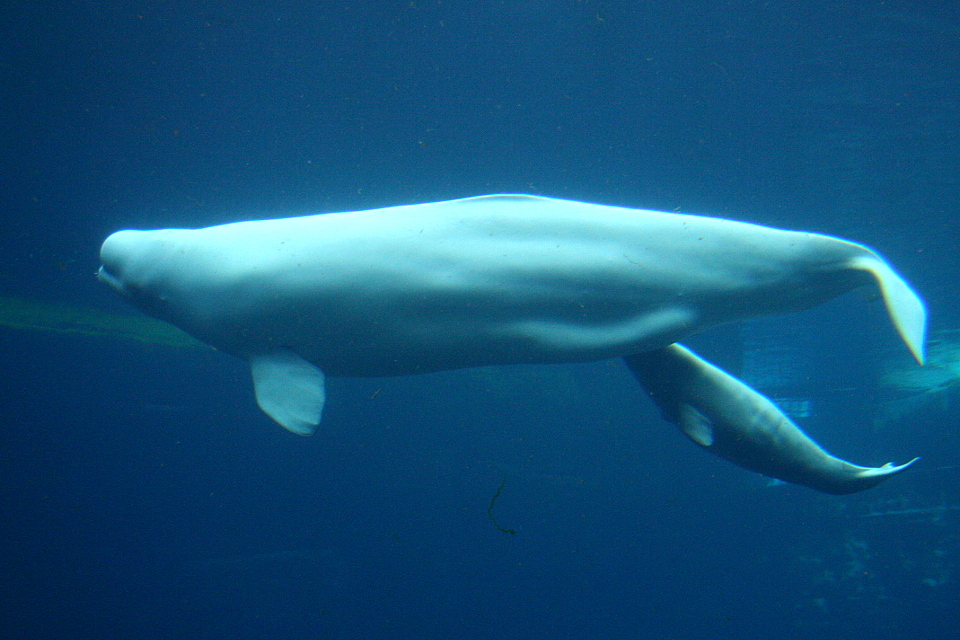Exclusive for zoos.media – 19.05.2019. Author: Philipp J. Kroiß
An important and significant study on belugas was carried out at the Shedd Aquarium. The study would never have been possible without the husbandry and breeding of these whales, which shows the importance of modern whale husbandry.
How beluga husbandry helps research
Whale husbandry is immensely important for the research of whales, which, in turn, constitutes an indispensable basis for conservation projects in nature. The breeding of the animals is also extremely important for this purpose. One of the Shedd Aquariums projects from the year 2017 shows this:
Did you know you can determine the reproductive status of a beluga whale by collecting the snot from its blowhole? Shedd's animal-care experts helped validate this research tool that helps conservation biologists in the field collect information about whales without the need for a biopsy.
Gepostet von Shedd Aquarium am Montag, 15. Mai 2017
Why is this so important?
In nature, ideally, research takes place with as little contact with the animals as possible. Whales get accustomed to boats and every positive experience – be it with food, play or touch – strengthens this process. It also increases the risk of a collision between the animals and boats, which could be fatal for the animals. This is why serious researchers do not start cuddling or interacting with animals and instead try to minimise contact. Capturing an animal means a lot of contact and is therefore avoided as often as possible.
A good way for humans and researchers to collect samples, is simply analysing the liquid the whale expires. It requires no capturing, no direct contact and is very preserving, when the necessary distance is kept and when done sparingly. Of course, we have to know what the data collected actually means. This is where belugas under human care come into play: To understand what the data means, we need animals in controlled conditions, of which we know almost everything, as there is a lot we cannot gather from wild animals.
The animals therefore constitute the important control group we need, to check hypothesis based on data from nature. Without beluga husbandry like that of the Shedd Aquarium, where the animals are bred, this wouldn’t be possible. These institutions are irreplaceable for research and make extensive studies on wild populations possible. This is especially important in the field of reproductive research. Currently, it looks as though contamination in the oceans could lead to infertility in the animals, which would mean a functional extinction: although the animals would still be alive for the next couple of years, they would not be able to reproduce, due to their infertility. To prevent something like this from happening early on, we need research on the reproduction of these animals.
Modern zoos and aquariums are of utmost importance
Of the species whose status was scientifically evaluated, around 25% are endangered. This shows how important their protection is nowadays. Here, modern zoos and aquariums, like the Shedd Aquarium, play an extremely important role.
We need modern zoos and aquariums and the opportunities they provide – they are irreplaceable for the comprehensive protection of species and nature.
